The last provision shop in an empty neighbourhood: After 90 years, a family business closes its doors
As residents moved out of MacPherson Lane's HDB blocks, one store continued to operate. But Chin Teck Chiang Seah Kee has now shuttered for good, leaving behind a rich legacy.
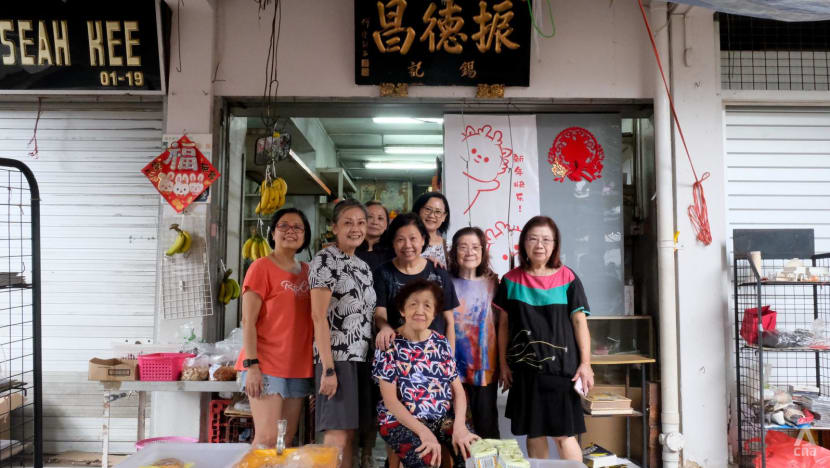
Members of the Lim family including Ms Esther Lim (first from right) and Ms Julia Lim (second from right). (Photo: CNA/Matthew Mohan)

This audio is generated by an AI tool.
SINGAPORE: By the time you read this, an institution which has stood for almost 90 years will be no more.
The Chin Teck Chiang Seah Kee provision shop survived a fire which swept through Lorong Tai Seng in eastern Singapore in 1961; the death of the family patriarch a decade and a half later; and a relocation in the late 1980s.
It then grew to become a fixture in the nearby MacPherson Lane neighbourhood. Other shops came and went, a popular wet market was demolished, but the family business stood proud.
Then came news in 2018 that the estate had been picked for the Selective En bloc Redevelopment (SERS) scheme. Neighbours said their farewells, moving trucks rolled in, and blocks emptied out.
But one piece of the community stayed on for as long as they were allowed to – that is until this week.
The provision shop that survived much will not survive time.
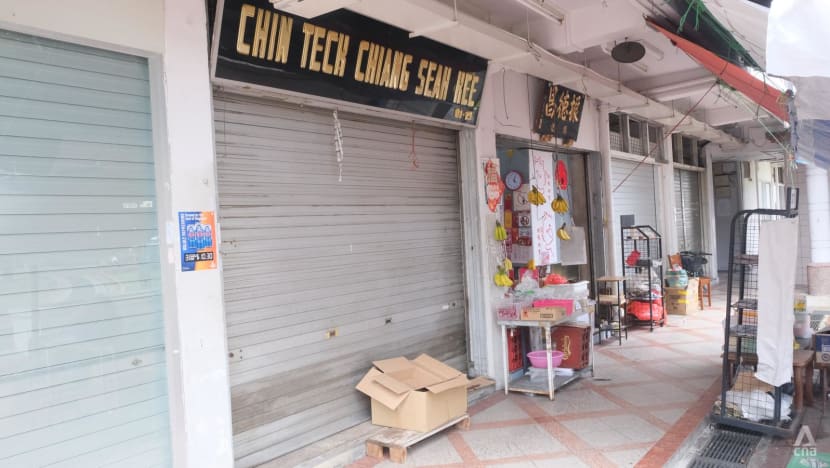
FIRE AND TEARS
The story begins with Mr Lim Chin Cheong, who was born in China's Shantou city and like many in the early days, came to Singapore in search of employment.
"He would carry those heavy sacks of rice weighing 50kg on his back, and cross very small planks from the bumboats onto the shore," said his daughter Esther Lim, 73.
Mr Lim first worked as a coolie before opening his own provision shop on Feb 1, 1936.
With its eight rooms, timber walls and zinc roof, this was where Ms Lim and her younger sister Julia spent their childhood.
"From day one when in our primary school times, we already started helping ... to carry this and that," said Ms Julia Lim, 72.
"During festive seasons ... the shop would be (so crowded) that we wouldn't be able to come in and had to shout to get the change (for customers)," added her older sister.
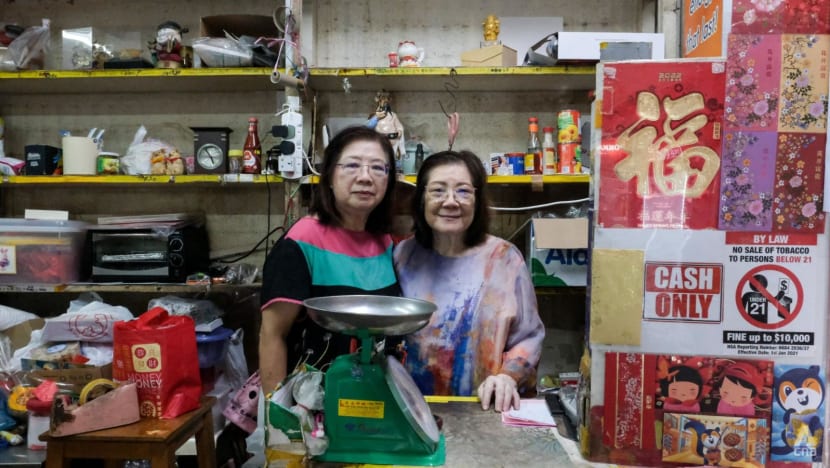
While the Lim sisters have fond memories of their time on Lorong Tai Seng, there are also more harrowing ones.
They recalled how a blaze swept through the area in 1961.
A total of 11 timber shophouses, nine attap houses, 12 food stalls and a number of other homes were destroyed. Two hundred and fifty people were left homeless, according to the National Library Board archives.
Fortunately for the Lim family, the front of their provision shop was spared, and they managed to eventually rebuild the back of it, where the living quarters were.
Mr Lim died in 1976, and his second oldest son Mr Lim Seah Lim took over the business.
Sisters Esther and Julia Lim had their own day jobs as a secretary and in admin respectively, but continued to lend a hand whenever they could.
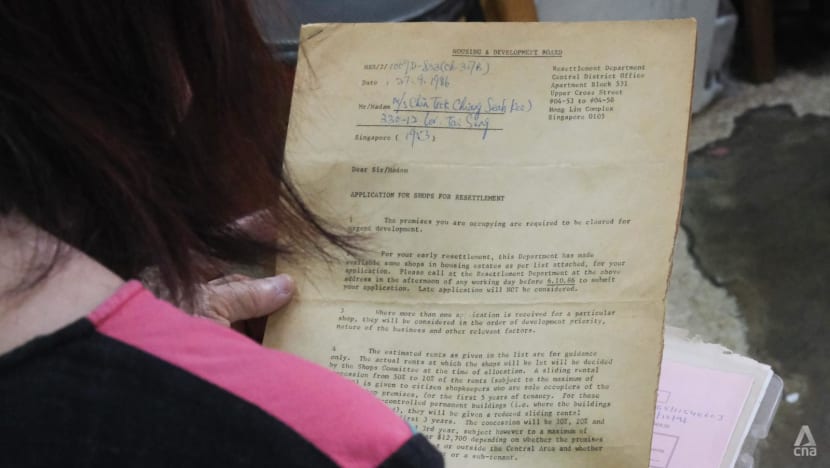
Then in 1986, the family received notice that they had to relocate as the premises had to be cleared for "urgent development".
It was time to move.
Even then, they were the last ones to leave the neighbourhood, said Ms Julia Lim.
Mr Lim Seah Lim stayed behind until the day men came to carry out demolition works. "My brother was so sad, he cried," added Ms Esther Lim.
"EVERYBODY KNOWS US"
The Lim family were offered several replacement properties, mainly in Toa Payoh and Geylang East.
But they wanted a shop nearby, and which came with an accompanying residence. When they found out about a vacant unit at a Housing Board block at 82 MacPherson Lane which fit the bill, they jumped at the opportunity.
"The people were not familiar to us, it was a bit strange here (at first)," said Ms Esther Lim.
After Mr Lim Seah Lim died in 1991, his wife Madam Loh Kah Chuang took over. Giving up the family business was never an option.
"It has sentimental value," explained Ms Esther Lim.
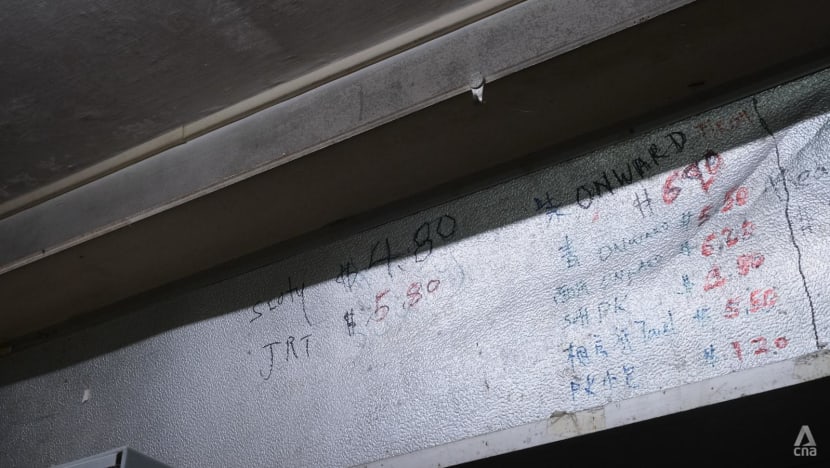
The Lims often had extra help too.
Scrawled within eyeline of the shop's cashier counter are prices of various items. This was to help remind not just the owners - but also neighbours chipping in to man the store.
"(If) they had nothing to do, during the day they would sit and chit-chat with us," Ms Esther Lim added. "Everybody knows us."
One fifth-floor neighbour who later moved to Punggol used to return almost every day to visit them.
"We wanted to pay her transport for coming down but she refused ... she buys things from the shop, we refuse to charge her, but she still pays," said Ms Esther Lim. "She just wanted to talk and help out."
The Lim sisters can't remember exactly when they were first informed of the SERS news, only that it was prior to the 2020 COVID-19 pandemic.
As part of the government’s efforts to renew older housing estates, the scheme offers residents new homes nearby while the old sites are redeveloped.
Residents at the three MacPherson Lane blocks were offered replacement units at Circuit Road. Owners of commercial properties, such as the Lims, were given some compensation and a new commercial unit, also at Circuit Road.
The decision was eventually made to rent out the new commercial unit and call time on the family business.
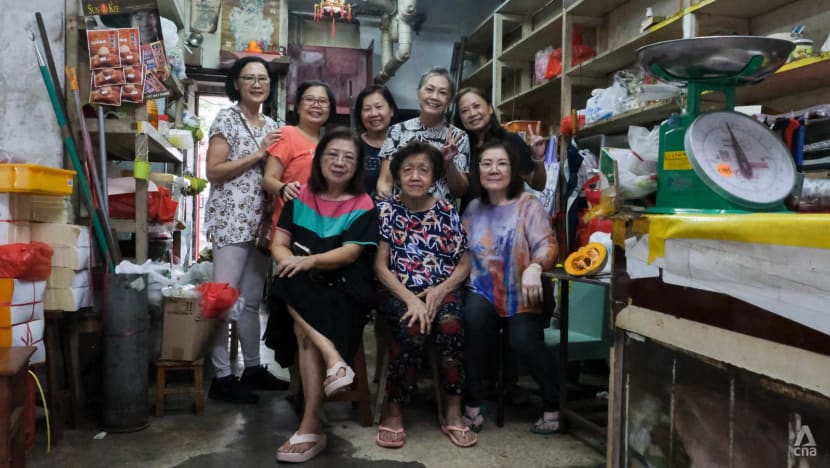
"I really didn't know how to feel. (But) at that time, because of the COVID pandemic, we knew we still had some time to carry on," said Ms Esther Lim.
"(We were) partly happy, partly sad. We don't have to work so hard (when the shop closes). The sad part is that the business has been around for so long. To give it up is a heartache."
"We are all over 70 years old. We are tired," she added. "These businesses are from the olden times. Now people want to go the NTUC, they can move around, enjoy the air-con."
Her sister Julia quipped that it meant they could "at least retire earlier".
"But ... it’s sad to leave because customers will miss us."
Despite the impending closure, the Lims' commitment remained. They kept the shop open for about 16 hours every day of the year, apart from closing on the first day of the Chinese New Year.
With owner Mdm Loh struggling with her hearing and old age, Ms Julia Lim quit her job in late 2023 to work full-time at the shop.
The work has left a toll on the latter's body - today she has a visible hunch, as a result of carrying heavy items around.
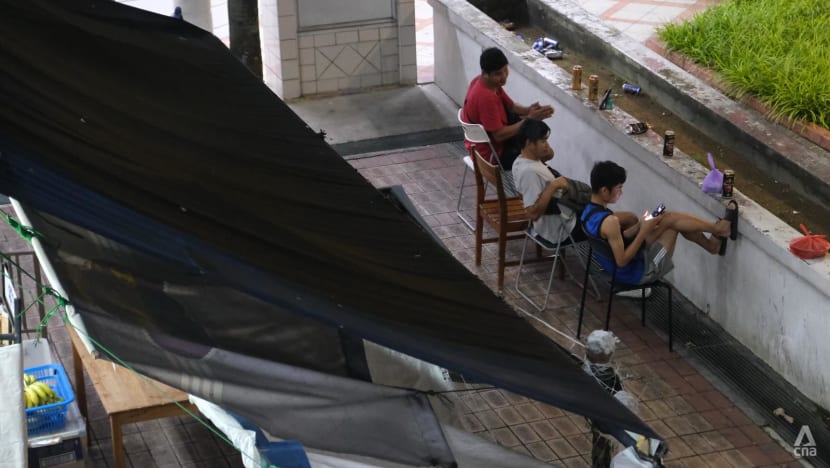
"IT'S VERY PAINFUL"
Residents in the estate started to move out in 2024. But in recent months, there were still customers - mostly workers who stay or work nearby - who continued to stream in and out of the provision shop.
One of them was Burmese national Si Thu Myo, who had patronised the store since he arrived in Singapore 11 years ago.
Come both weekday and weekend evenings, the 38-year-old can be found sitting outside the provision shop, drinking beer with friends.
"I am so sad (that they are closing) ... (The prices) are good, and they take care of us like we're from the same family," he said. "Now we cannot decide where to go."
"The workers always come to us to buy drinks ... we have to cater for all this," said Ms Julia Lim.
For reasons like these, the Lims held on for as long as they could, bound by a sense of duty to the community.
But gradually, the shop emptied out. It stopped ordering more goods, apart from canned drinks, beer and newspapers.
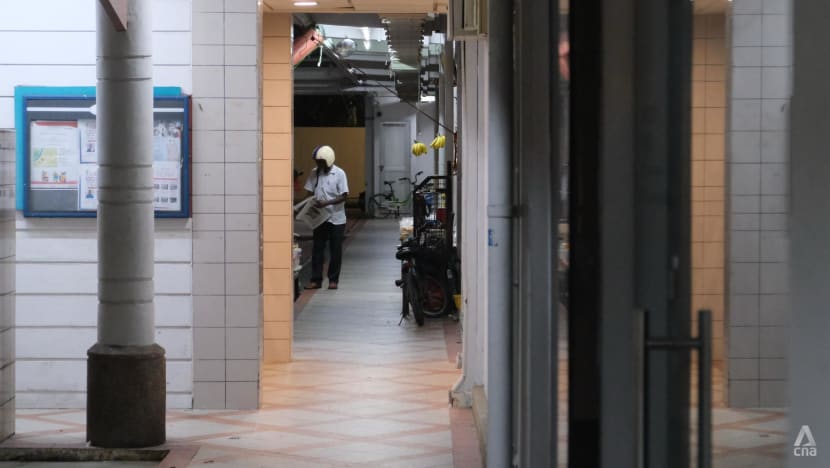
"It's quite hard (to decide to stop). It's very painful," said Ms Esther Lim. "We still want to maintain my father's shop, but what to do?"
Memories of the old times linger.
Shelves used in the shop's earlier Tai Seng incarnation are still fixed firmly to the walls. The black signboard out front has survived since after the fire.
During the shop's final weekend, a number of former residents popped by, including Mr Roen Lim, who grew up in the estate and was accompanying his mother, a long-time friend of the Lims.
He has fond memories of the shop and recalled how they used to sell traditional piggy mooncake biscuits and paper lanterns during the Mid-Autumn festival.
"Kids would come by and patronise and buy the stuff, play at the nearby playground, sometimes run out to the nearby wet market," he said.
On Thursday (Feb 26), the Lims handed over the keys to authorities, and called time on Chin Teck Chiang Seah Kee.
"The neighbours keep asking for our phone number," said Ms Esther Lim. "They want to contact us and visit us next time."
Asked what she would miss, her answer was simple.
"The neighbourhood."














